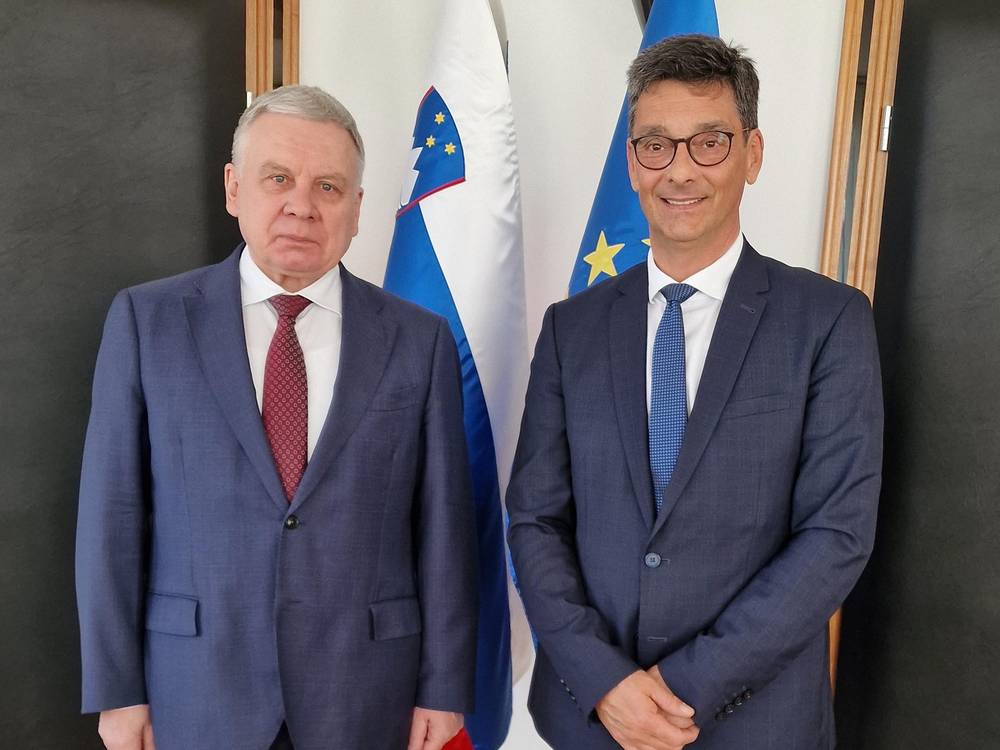On 22 March 2023, the Human Rights Ombudsman Peter Svetina met the Ukrainian Ambassador Andrij Taran. They talked about the position of refugees from Ukraine since the spring of 2022. The institution of the Ombudsman has been closely monitoring their fates and their treatment by the Slovenian authorities since their arrival. It has been supervising the scope and duration of acquiring rights, access of children and teenagers to schooling, employment of adults, their living conditions in accommodation capacities of the state, and the measures for preventing human trafficking.
Within the analysis of the treatment of Ukrainian refugees in Slovenia, in addition to monitoring the scope of rights through regulations, the Ombudsman last year also several times addressed the Government Office for the Support and Integration of Migrants (UOIM) and ministries of public administration, internal affairs, labour, family, social issues and equal opportunities, and education, science and sport. The Ombudsman also turned for information to the office of the United Nations High Commissioner for Refugees (UNHCR) and non-governmental organisations working in the field of care and protection of the rights of refugees or in the field of human trafficking. Representatives of the Ombudsman visited the refugee centre in Logatec, where they talked to the head of the centre, the director of the UOIM, and some of the refugees living there. When operating in Ankaran, Ombudsman Svetina and his colleagues also visited accommodation facilities in Debeli rtič and talked to the management of the Office and tenants from Ukraine.
The Ombudsman is worried about the lengthiness of procedures for the acquisition of temporary protection at certain administrative units. Namely, other rights, such as the right to monetary aid for private accommodation, the right to healthcare, work, education, financial assistance or allowances are bound by the acquisition of this status. The Ombudsman expects appropriate action from those responsible so that such backlogs do not continue to happen.
The Ombudsman also closely monitors human trafficking where he is in constant contact with the Ministry of the Interior (MNZ) and the Police. In November last year, the MNZ informed the Ombudsman that the Police had detected and examined five cases in which suspicions of the crime of human trafficking were detected and in which citizens of Ukraine were presumably exploited and were victims of human trafficking. In two cases police officers determined based on gathered information and proof that there were no grounds for criminal complaints, while in three cases they were continuing to gather information at the time of responding.
The Ombudsman also informed his guest that on 16 and 17 March 2022, he and the European Regional President of the International Ombudsman Institute (IOI), the Greek Ombudsman Andreas Pottakis, visited the Hungarian-Ukrainian border and informed themselves about the treatment of refugees from Ukraine. The Ombudsman travelled there in his capacity as one of the IOI directors for Europe. He also told the Ambassador that at a recent meeting of the Global Alliance of National Human Rights Institutions (GANHRI) in Geneva he had met with the Ombudsman from Ukraine Dymitro Lubinets.

